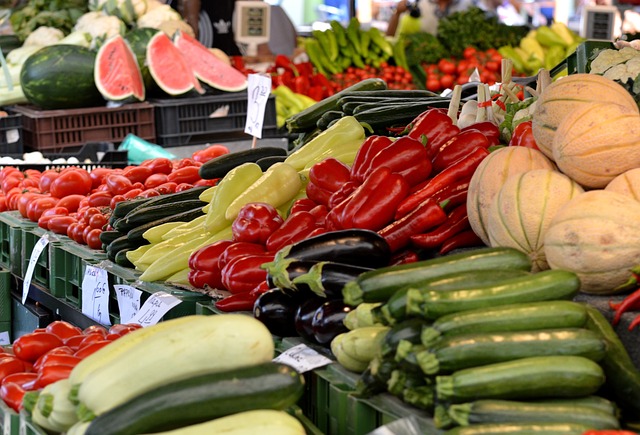Organic recycling is a key component of eco-friendly living, transforming household waste into valuable resources that benefit both your home's environment and local ecosystems. By composting food scraps, garden waste, and paper products, homeowners can create nutrient-rich compost to enhance soil fertility. Understanding proper sorting and basics like dedicated municipal programs helps reduce waste sent to landfills, mitigating greenhouse gas emissions. Adopting practices such as composting kitchen scraps and repurposing materials into mulch not only reduces yard waste removal but also promotes a healthier environment and sustainable living. Community initiatives play a crucial role in successful organic recycling programs by facilitating collection, processing, and conversion of organic materials into compost or biogas, raising awareness, and enhancing local biodiversity.
In today’s eco-conscious world, organic recycling is a powerful tool for homeowners aiming to create sustainable, eco-friendly living spaces. This comprehensive guide explores the art of transforming household waste into valuable resources. From understanding the fundamentals of organic recycling to effective yard waste removal and composting techniques, we delve into actionable steps. Discover how gardening with recycled materials can enhance landscapes and explore community initiatives for collaborative impact. Learn about the profound environmental benefits of adopting these practical practices in your home, contributing to a greener future through responsible yard waste management and recycling.
- Understanding Organic Recycling: The Basics for Eco-Conscious Homes
- Yard Waste Removal: A Sustainable Approach for Homeowners
- Composting 101: Transforming Kitchen Scraps into Nutrient-Rich Fertilizer
- Gardening with Purpose: Using Recycled Materials in Landscaping
- Community Initiatives: Collaborating for Effective Organic Recycling Programs
- The Environmental Impact: Benefits of Adopting Organic Recycling Practices at Home
Understanding Organic Recycling: The Basics for Eco-Conscious Homes

Organic recycling is a fundamental practice for eco-friendly homes, focusing on transforming waste into valuable resources that benefit both your home’s environment and local ecosystems. It involves the decomposition of organic materials like food scraps, garden waste, and paper products to create nutrient-rich compost, which can then be used to enhance soil fertility and support plant growth. By implementing organic recycling methods, homeowners can significantly reduce their environmental footprint and contribute to a more sustainable lifestyle.
For eco-conscious individuals, understanding the basics of yard waste removal and recycling is essential. This includes identifying which materials are suitable for composting, properly sorting and collecting them, and ensuring they go through the right decomposition process. Many municipal areas offer dedicated programs for organic recycling, providing containers or bins to collect and transport these materials to facilities where they can be processed into compost or bio-gas, further reducing waste sent to landfills and mitigating greenhouse gas emissions.
Yard Waste Removal: A Sustainable Approach for Homeowners

Many homeowners view yard waste removal as a necessary yet daunting task, often relying on traditional disposal methods. However, embracing organic recycling offers a sustainable and eco-friendly approach that benefits both the environment and your local community. By implementing proper yard waste management techniques, such as composting and mulching, homeowners can reduce the amount of organic material ending up in landfills.
This shift towards sustainable practices starts with simple changes. For instance, instead of bagging leaves and grass clippings, consider leaving them on your lawn to decompose naturally, enriching the soil. Composting kitchen scraps and yard debris at home not only minimizes waste but also produces nutrient-rich compost that can be used as a natural fertilizer for your garden. These practices contribute to a circular economy, where organic waste is transformed into valuable resources, fostering a healthier environment and promoting a more sustainable lifestyle.
Composting 101: Transforming Kitchen Scraps into Nutrient-Rich Fertilizer

Composting is an easy, eco-friendly way to transform your kitchen scraps into nutrient-rich fertilizer for your garden. It’s a simple process that involves collecting organic materials like fruit and vegetable peels, coffee grounds, and yard waste removal—such as leaves and grass clippings—and allowing them to decompose naturally. This natural decomposition creates a dark, crumbly substance called compost, which is packed with essential nutrients that can enhance soil structure and promote plant growth.
By composting, you’re not only reducing your household’s waste output but also contributing to a more sustainable home ecosystem. It’s a great way to recycle kitchen scraps and yard waste, diverting them from landfills where they would otherwise decompose and release greenhouse gases. Instead, you’re creating valuable compost that can be used to nourish your garden, making it a true game-changer for eco-friendly living.
Gardening with Purpose: Using Recycled Materials in Landscaping

Incorporating recycled materials into landscaping is a creative way to reduce yard waste removal and promote an eco-friendly home environment. Instead of discarding organic matter, homeowners can transform it into valuable resources for their gardens. Composting food scraps and yard trimmings creates nutrient-rich soil amendments that enhance plant growth and reduce the need for chemical fertilizers. This sustainable practice not only minimizes environmental impact but also fosters a lush and vibrant outdoor space.
From old newspapers to wooden pallets, various recycled items can be repurposed in landscaping designs. For example, chipped wood from discarded pallets can serve as an organic mulch, suppressing weeds and conserving moisture in plant beds. Similarly, hollowed-out containers or cracked ceramic pots can find new life as unique planters, adding character to the garden while diverting waste from landfills. By getting creative with recycled materials, homeowners contribute to a circular economy, ensuring that yard waste is transformed into valuable assets for their green sanctuary.
Community Initiatives: Collaborating for Effective Organic Recycling Programs

Community initiatives play a vital role in fostering effective organic recycling programs, particularly for eco-friendly homes and sustainable neighborhoods. By collaborating with local governments, environmental organizations, and residents, communities can establish robust yard waste removal and recycling systems. These partnerships enable the collection and processing of organic materials such as food scraps, garden waste, and lawn clippings, which are then transformed into valuable resources like compost or biogas.
Such collaborative efforts enhance the efficiency of recycling processes by creating a network of drop-off points, composting facilities, or even community gardens where residents can participate in the recycling journey. Educating the community about the benefits of organic recycling and proper waste segregation encourages everyone to contribute, ultimately leading to reduced environmental impact and a greener living space for all.
The Environmental Impact: Benefits of Adopting Organic Recycling Practices at Home

Adopting organic recycling practices at home significantly reduces environmental impact by minimizing yard waste removal and recycling. When organic materials like food scraps, garden trimmings, and leaves are diverted from landfills, they decompose naturally, cutting down on greenhouse gas emissions that contribute to climate change. This process also conserves valuable resources as it creates nutrient-rich compost that can be used to enhance soil fertility, thereby promoting sustainable gardening practices.
Moreover, organic recycling promotes a healthier ecosystem by reducing pollution and preserving habitats. By composting at home, residents can lower their carbon footprint while contributing to the local biodiversity. These benefits extend beyond individual homes, fostering a more sustainable community overall. As more people embrace organic recycling, the collective impact on the environment becomes substantial, paving the way for eco-friendly living practices to thrive.
Adopting organic recycling practices, such as efficient yard waste removal and composting, not only reduces home environmental impact but also fosters a sustainable lifestyle. By understanding the basics of organic recycling, implementing effective kitchen scraps composting, and utilizing recycled materials in landscaping, homeowners can contribute to a greener world. Community initiatives further enhance these efforts, creating a network of eco-conscious individuals working towards a more sustainable future. Embracing these practices is a powerful step toward minimizing waste and maximizing resource efficiency.



